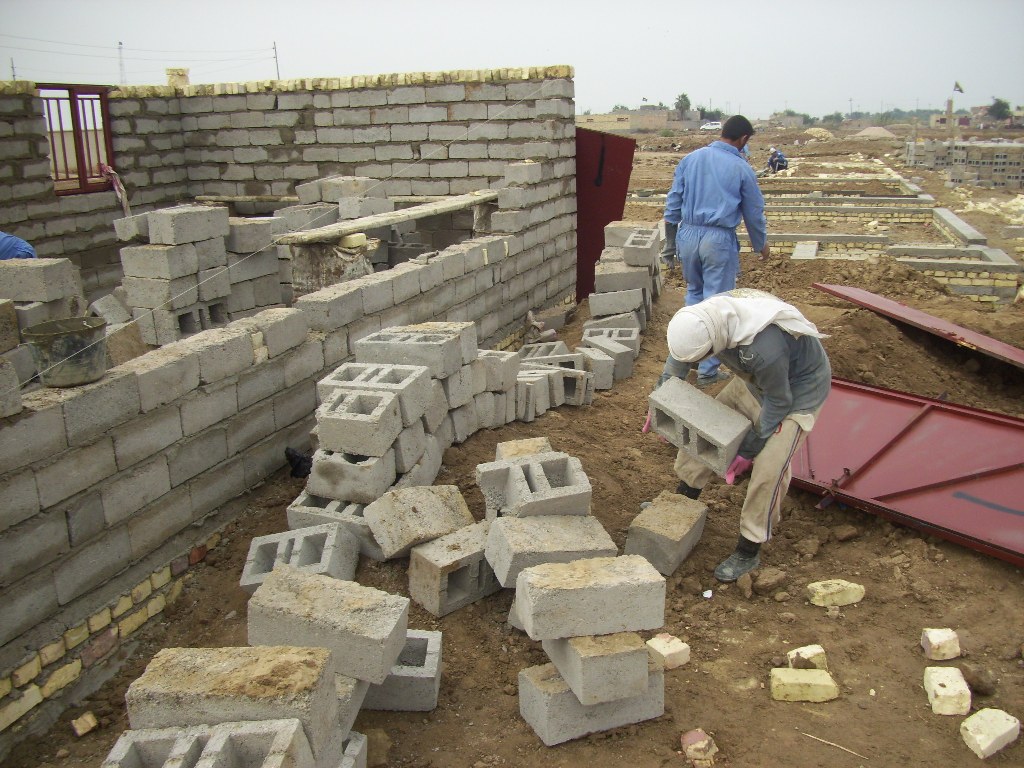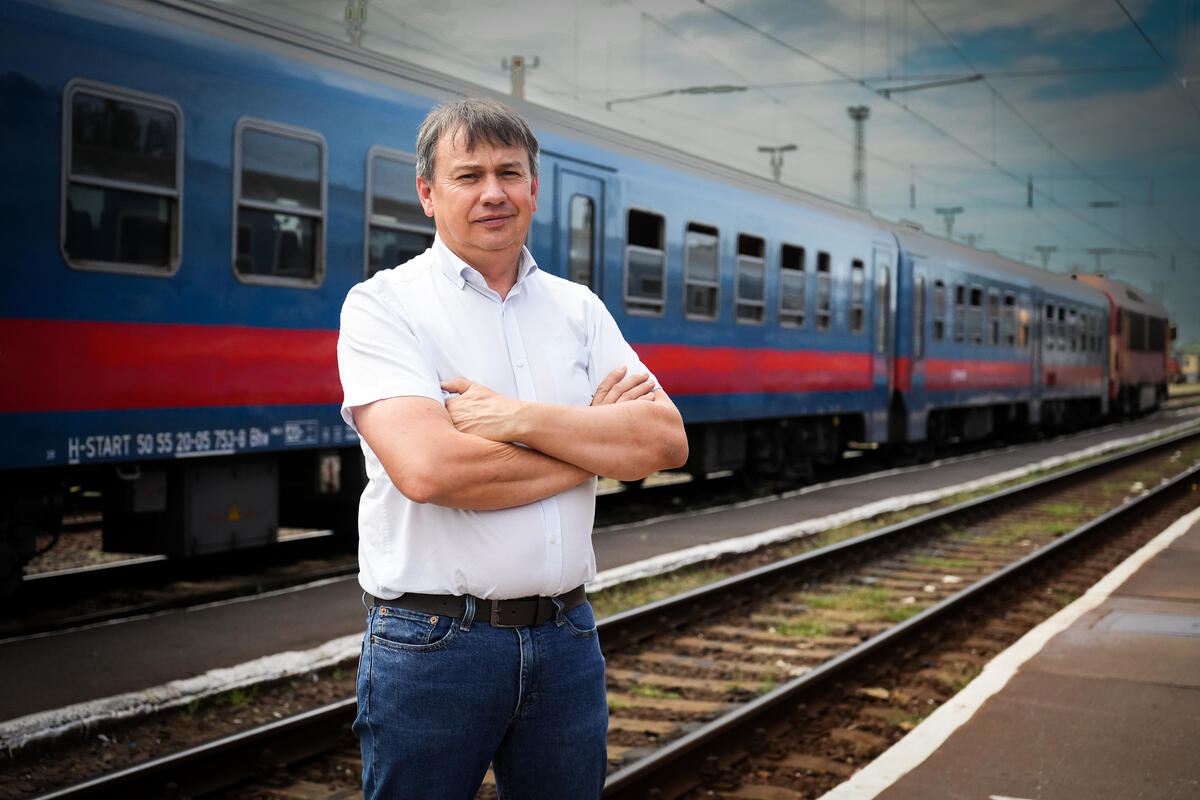Former Iraqi refugees benefit from UNHCR shelter programme in the south
Former Iraqi refugees benefit from UNHCR shelter programme in the south

AL KAHLA DISTRICT, Iraq, May 20 (UNHCR) - Seven years after returning to Iraq from long exile in neighbouring Iran and three years after losing her husband and son in a bomb blast, Suad Jafar finally has something to be happy about - a house of her own.
Suad and her five grandchildren were among a group of 180 Iraqi families, gathering more than 1,000 people, who were given the keys to new houses earlier this month in the southern province of Missan under a UNHCR shelter programme.
All of the families came back from Iran after the ouster of the late President Saddam Hussein in 2003 and they were allocated land by the government. But they did not have the resources or finances to build, and some faced difficulty in paying to rent a place.
UNHCR was unable to help this particular group of former refugees until 2009, when more staff were deployed in Basra amid the improved security situation. Staff soon identified some pre-2003 refugees as particularly vulnerable and decided to include them in the agency's shelter programme, which saw UNHCR fund the construction or rehabilitation of more than 10,000 houses around the country last year.
In Missan's, UNHCR's implementing partner, the Danish Refugee Council (DRC), organized the construction of the shelters that were handed over last month at a ceremony attended by UNHCR and DRC staff as well as government officials.
"I cannot believe I have my own house. It is like a miracle that has come true," Suad said, when she was given her keys. She had fled to Iran with her husband and son a few months after the end of the first Gulf War in 1991.
When Saddam and his regime fell, the family returned to Al Kahla in Missan and were later given a 200-square-metre plot of land by Iraq's Ministry of Displacement and Migration. But they could not afford to build on it and things got worse when Suad's husband and son were killed in a bomb blast in Baghdad in 2006.
Although she is still dependent on aid from relatives and humanitarian organizations, having her own two-room house will make life a lot easier and brighter for Suad as she struggles to bring up her five grandchildren, whose mother is too ill to take care of them.
Morsy Hussein and his family also received a new house in Al Kahla district under UNHCR's shelter programme. He spent more than 25 years in exile, living near the holy city of Qom. But after returning in 2003, he found it difficult to earn a living as an unskilled labourer.
In late 2009, the Danish Refugee Council started construction work on the piece of land he had been given by the Ministry of Displacement and Migration. He and his relatives moved in at the same time as Suad and her young family. Now that he does not have to pay rent, Morsy will likely find it easier to provide for his kin.
UNHCR's work in Missan complements the Iraqi government's land allocation programme for pre-2003 refugees, under which the Ministry of Displacement and Migration has distributed some 2,000 plots of land to returnees in the south.
Meanwhile, UNHCR plans to continue its valuable shelter programme, "subject to availability of funds," noted Daniel Endres, the refugee agency's representative in Iraq. "UNHCR plans to complete some 50,000 units this year for formerly displaced populations," he said, adding that this would help ease the reintegration of about 300,000 Iraqis.
It is an enormous challenge that cannot be achieved without the continuing help of the donor and international community. UNHCR is appealing this year for more than US$500 million for its operations helping forcibly displaced Iraqis inside and outside the country. This includes some US$264 million for operations in Iraq, much of it for shelter projects to benefit the internally displaced and returnees.
By Maha Sidky and Mohamad Al Soudani in Al Kahla District, Iraq








